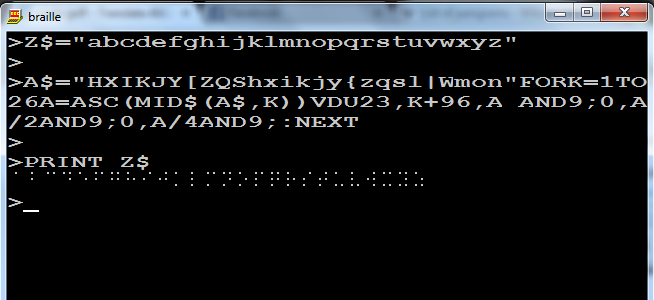Write a program that translates ASCII text to braille output. Requirements:
- Input may come from stdin, command line, or some other external input source.
- Output should be recognisable as braille, the form of output is up to you. An example would be
ofor a raised dot and.for a non-raised dot. Textual pattern representation such as1-3-4is not acceptable. Long line wrapping is not required. - Only the 26 alphabet characters and space are required for a minimal solution. All input characters not supported by your solution should be ignored.
Scoring is by number of characters in the source code. Penalties and bonuses are:
- +50 penalty for using Unicode braille characters as output.
- -50 bonus for supporting capitals, numbers, and punctuation.
-200 bonus for supporting ligatures and one-letter contractions from English (Grade-2) Braille.(Will make this a separate challenge since it's quite a different problem.)
Sample invocation and output (minimal solution):
$ braille Hello world
o . o . o . o . o . . . . o o . o . o . o o
o o . o o . o . . o . . o o . o o o o . . o
. . . . o . o . o . . . . o o . o . o . . .

